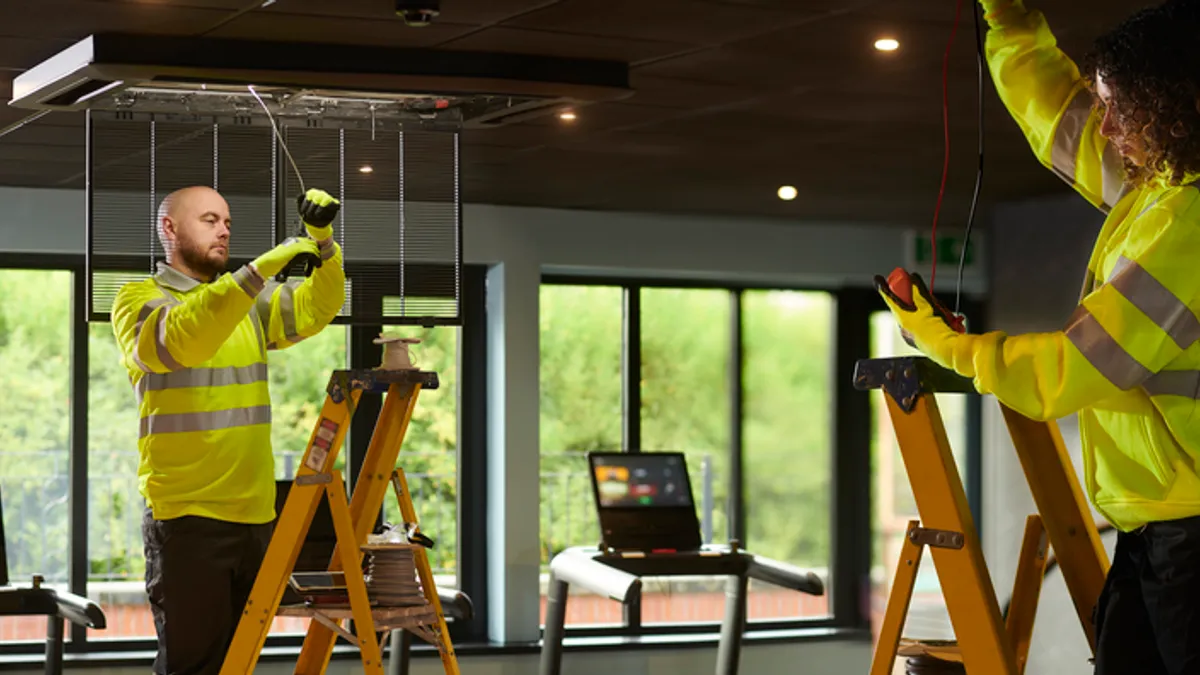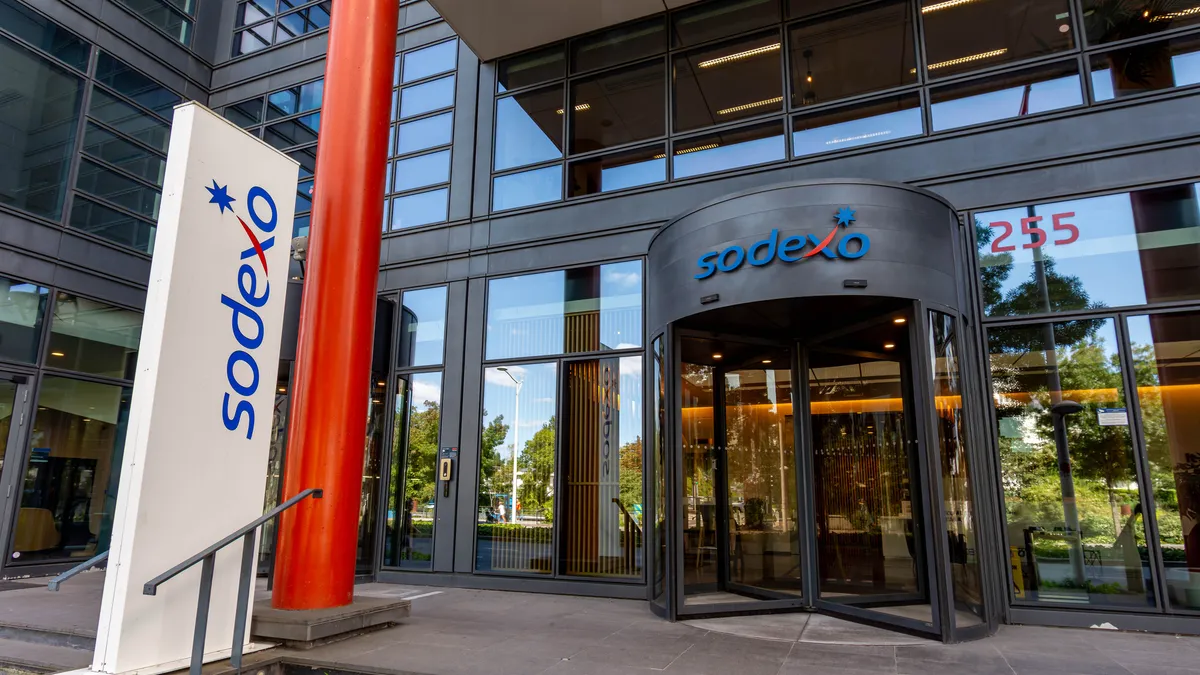Copenhagen-based ISS has grown into one of the largest employers in the world with some 320,000 workers in dozens of countries by offering corporate clients a menu of services for operating their facilities. But in the United States the company has been competing in the shadows of JLL, Cushman & Wakefield, CBRE and other industry giants. Making inroads into that dominance is top of mind for new leaders of the company’s North American operations.
“ISS has always been a European and Asian-specific brand but we’re now building up the U.S. brand in a similar way,” Joe Stolarski, president of the eastern division of ISS North America and a former JLL veteran, said in an interview. “When I was at JLL, I didn’t look at ISS very aggressively as a major competitor.”
The company has reorganized its North American operations to roll up all of its services — facilities management, food, custodial, workplace services and others — into three regions to give the heads of these regions better control over the bundle of services they offer their clients. Along with Stolarski, industry veterans from Cushman & Wakefield and CBRE have come in as the other regional presidents.
“The reorganization allows us to get hyperlocal and client centric,” said Stolarski, hired in January after helping to get a startup off the ground following 12 years at JLL, where he oversaw the company’s Americas operations, a $5 billion business, according to his LinkedIn page. “It’ll be seamless to our clients, but it’s an opportunity for me to reintroduce ISS to the marketplace.”
Food service focus
Stolarski sees the company’s strengths in food services as a differentiator he can leverage. ISS acquired a big food services company, Guckenheimer, in 2017. That part of the business has been growing independently of the other parts, but under the reorganization, all of the services will be closely integrated, he said.
“There’s so much value in bringing our hospitality business — this mindset and culture — into the facilities space,” he said. “We’re a true hospitality business. We’re not just talking about hospitality but we’re in the business of providing an experience for the people in your building.”
The hospitality mindset will be crucial to the company’s growth strategy as more businesses bring their employees back to the office after years of remote work, he said.
To have a successful return-to-office policy, companies will be looking for ways to make the experience as positive as possible for their employees, according to Stolarski.
“How do you ensure that people want to come in and feel good about being there?” he said.
Since joining ISS, Stolarski heard from the company’s clients that its food service operation is a difference-maker for them because of the way it can enhance the experience for people in the facilities.
“They love how our chefs are out on the floor,” he said. “At lunch time, you always see one of our chefs out front, talking to people. They all know the chef. Each one has a bit of a celebrity personality, anyway, and they come out and engage with the people.”
The food services operations have been built for efficiency, he said. The company leverages its economies of scale to centralize buying to keep food costs down. By controlling the mix of ingredients from which chefs can choose to build their menus, it can help ensure the operations comply with health, safety and allergen regulations while allowing local menu variation.
“We tell our local chefs that we’re going to create a dance floor for them,” he said. “You can dance all you like, but you have to stay on the dance floor.”
Under the reorganization, company executives can take that hospitality mindset and apply it to all of the service areas ISS offers, with the goal of giving clients a package that can form the basis of making RTO something employees can look forward to, according to Stolarski.
“How do you create those moments of truth with the people who occupy the building?” he said. Facility managers “want partners who can create a special environment.”
For clients, the biggest value will be in buying a bundle of services because that helps ensure the hard services are integrated well with the soft services.
A client “could have a dozen contracts instead of one,” he said. “The risk is, the services don’t talk to each other. They don’t know who’s going to show up. Is the same HVAC technician going to show up, on time, and do the work?”
ISS can pull people from one division to help another as needed if it has a fuller complement of people on the ground, he said.
“A lot of times during the lunch rush, we’ll have custodial people break away from the work they’re doing in the rest of the building to come help,” he said. “So, it’s a clear integration which creates value — not to mention esprit de corps,” or loyalty and fellowship that arises among team members.
“Having the same people work together as a team is important. You can build on that when you have more of those resources together under one banner,” Stolarski said.
At the end of the day, facilities management is a people business, according to Stolarski. “You can try to come up with a leverage model or technology solution that gets you [into this business], but a body still needs to be there,” he said. “If you want to feel good about the company you’re hiring to do the work, the self-performing model [where one company has multiple divisions in-house] is the way to go.”





















